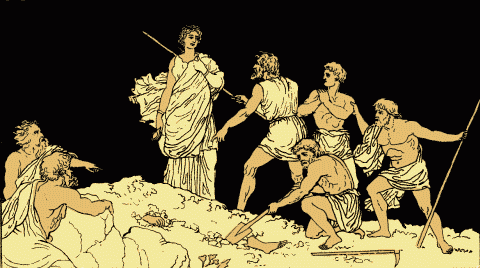|
Jean Rotrou's version of the Greek classic makes some interesting changes to the structure that refocuses the play as a family drama as opposed to the traditional take as a question between loyalties to god's law and man's law. The first major change being the fact that Jocasta is alive, at least for the first two acts, to chastise her also alive sons for fighting over the crown of Thebes. Whereas in Sophocles, all of this, including Antigone's actions to bury Polynice's body, is simply prologue. This allows Sophocles's play to focus on the dialectic argument of loyalty to state/divinity/family/etc. By shifting this action onto the stage, Rotrou refocuses the play on the relationships between the characters: brother/brother, sister/sister, sister/brother, mother/son, father/son, and uncle/niece. This together makes the play feel less high brow and political, and more emotional and tragic as we watch every bond that holds this family together break. A cynical part of me thinks that this may have been to avoid the uncomfortable questions inherently posed in the story, i.e. are absolute monarchs truly absolute if they must also obey god's laws, but after finishing the play I truly felt moved by the predicaments of each of the characters. This could be the first 17th century play that has a depth of character that would interest a modern audience. There is so much more that I could say about this play, truly the fact that it was overshadowed by the big name writers of the Grand Siècle is a shame.
0 Comments
Leave a Reply. |
Jennifer KellettM.A. French Literature Florida State University Archives
June 2021
Categories |
Photos used under Creative Commons from mharrsch, Renaud Camus

 RSS Feed
RSS Feed
